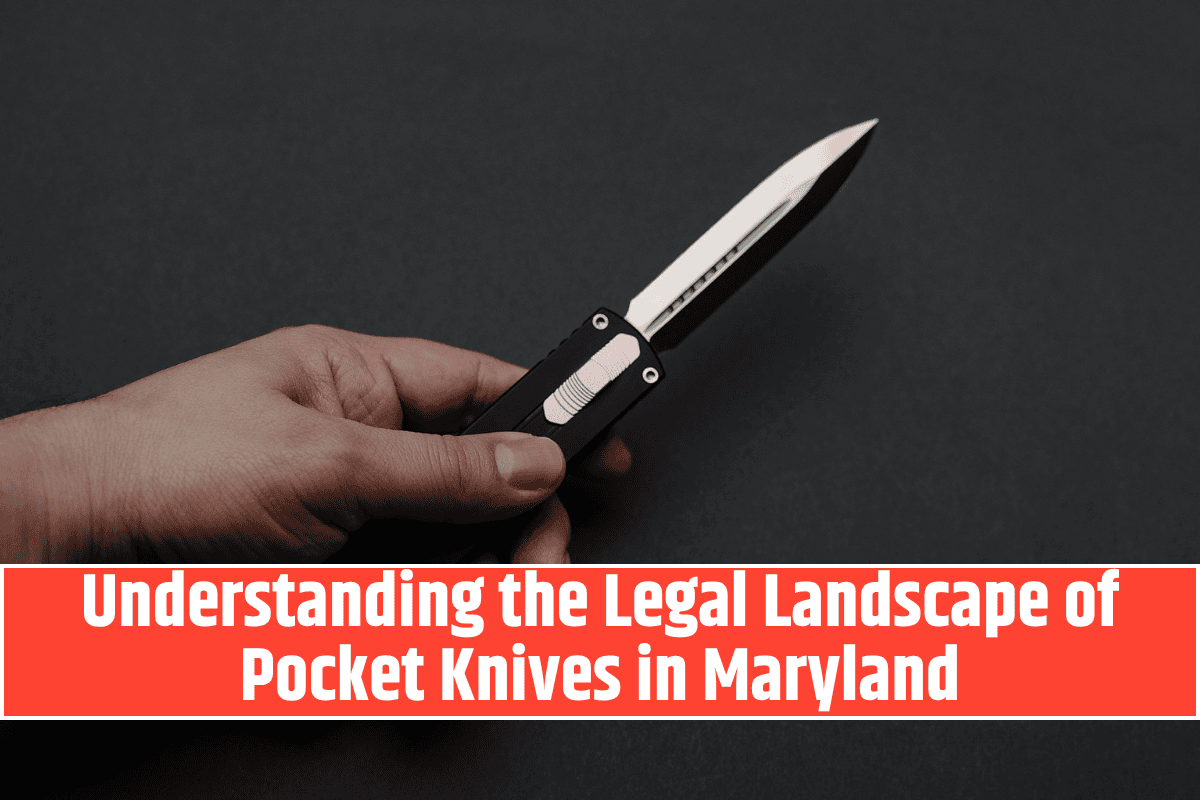If you’re living in or visiting Maryland and thinking of carrying a pocket knife, it’s important to understand the local laws. Knife rules in Maryland can be confusing.
Some types of knives are allowed, while others are not. Also, rules can change from one city to another. Knowing these laws helps you avoid legal trouble and stay safe.
Maryland has set rules on what kind of knives are legal to carry, where you can carry them, and how. Whether you’re a collector, using a knife for work, or just like carrying one for safety, this article will explain Maryland’s knife laws in a clear and simple way.
What Do Maryland Knife Laws Say?
Maryland’s knife laws are designed to protect public safety. They explain which knives are allowed, which are banned, and where they can be carried. The laws apply to both open and concealed carrying of knives.
You can carry certain types of knives openly in Maryland, but if you want to carry them hidden (like in your pocket), you may need a special permit.
General Knife Restrictions in Maryland
Some knives are completely banned in Maryland, especially those considered dangerous. Carrying a hidden knife is not allowed unless you have a proper permit. Also, you cannot carry any kind of knife inside schools, government offices, or other restricted places.
Even if a knife is legal, using it in a threatening or harmful way can lead to serious legal trouble.
What Does Maryland Law Consider a Dangerous Weapon?
Maryland law uses the term dangerous weapon for anything that can hurt someone seriously. This includes certain knives, even if you didn’t plan to use them in a harmful way. According to Criminal Law 4-101, if a knife is used or intended to be used as a weapon, it may be considered illegal.
So, carrying a legal knife is fine — but once it’s used to scare or harm someone, it may become illegal under this law.
Types of Knives Banned in Maryland
Maryland bans the use and possession of some knife types. These include:
Automatic knives (like switchblades): These open by pressing a button or spring.
Gravity knives: These open just by using gravity or a wrist flick.
OTF (Out-the-Front) knives and neck knives: Often banned or restricted because of how they operate or are worn.
These knives are seen as more dangerous because they’re fast and easy to use in the wrong way.
Legal Ways to Carry Knives in Maryland
If you want to carry a knife in Maryland, you must know the legal options.
Open Carry Rules
You can openly carry some knives in Maryland without needing a permit. But the knife should not be a banned type like a switchblade or gravity knife. Always check local city rules because some places may have stricter laws.
Concealed Carry Permits
If you want to keep your knife hidden, like in a pocket or bag, you may need a concealed carry permit. Getting this permit involves background checks and approval from local law enforcement. Without this, carrying a concealed knife could get you in legal trouble.
Knife Classification Under Maryland Law
Knowing how knives are classified helps in following the law.
Dangerous vs Legal Knives
Knives like kitchen knives or folding pocket knives are usually legal unless used dangerously. But knives like switchblades and gravity knives fall under the “dangerous weapons” category and are restricted.
Breaking these rules can result in heavy fines, legal penalties, or even jail time.
Rules for Specific Knives in Maryland
Each knife type has its own rules in Maryland. Here’s a quick overview:
Automatic and Switchblade Knives
These knives are banned for concealed carry. Open carry may be allowed with a permit, but you need to be cautious.
Gravity Knives
Since they open easily with movement, they are treated the same as automatic knives. Maryland law is very strict about them.
Assisted Openers
These are not always banned but can be tricky. If they act like switchblades, they may be considered illegal. Always check the latest law updates or ask local police if unsure.
Understanding Maryland’s knife laws is important if you want to carry a knife legally. The state bans certain knife types like switchblades and gravity knives, especially if you hide them.
Open carry of legal knives is usually fine, but local rules may be stricter. Carrying a knife in places like schools or government buildings is a bad idea and can lead to legal trouble.
To stay safe, always check the type of knife you are carrying and where you’re carrying it. If you’re unsure, it’s better to ask local law enforcement or avoid carrying the knife until you confirm the rules. Being informed keeps you safe and out of legal trouble.












